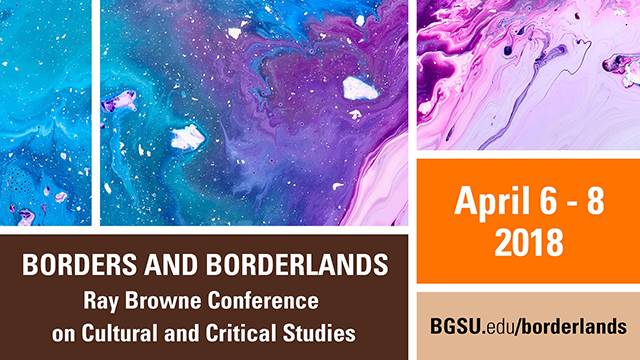
Concurrent Panel Session Three
Hollywood Made in Kenya: Watching Hollywood through Dj Afro
Start Date
6-4-2018 3:00 PM
End Date
6-4-2018 3:50 PM
Abstract
The question of audience reception has been widely debated in popular culture, with scholars such as De Certeau and Stuart Hall arguing that more focus should be paid to everyday cultural elements and the “common” person. However, these works have not adequately addressed the issue of localization especially with film commentators who act as an intermediary between foreign films and local audiences. My paper addresses the issue of localization specifically, in my project, I will be looking at DJ Afro, to show how he uses Kiswahili, Sheng, and Gikuyu to translate Hollywood films. I will discuss cultural differences between Kenyans and Americans and Dj Afro’s choice of words while translating these differences. I argue that DJ Afro provides local access to Hollywood films among people who do not understand English and describe the language and cultural aspects that make Hollywood movies available and popular amongst the poor in Kenya. In conclusion, this project, by closely examining Dj Afro’s “films” and through interviewing him, sheds new light on the rarely acknowledged issue of film interpretation thus localization of global cultural products, especially in the context of Africa (specifically Kenya).
Keywords
Localization, audience reception, Hollywood, cultural interpretation, Dj Afro, Kenya
Hollywood Made in Kenya: Watching Hollywood through Dj Afro
The question of audience reception has been widely debated in popular culture, with scholars such as De Certeau and Stuart Hall arguing that more focus should be paid to everyday cultural elements and the “common” person. However, these works have not adequately addressed the issue of localization especially with film commentators who act as an intermediary between foreign films and local audiences. My paper addresses the issue of localization specifically, in my project, I will be looking at DJ Afro, to show how he uses Kiswahili, Sheng, and Gikuyu to translate Hollywood films. I will discuss cultural differences between Kenyans and Americans and Dj Afro’s choice of words while translating these differences. I argue that DJ Afro provides local access to Hollywood films among people who do not understand English and describe the language and cultural aspects that make Hollywood movies available and popular amongst the poor in Kenya. In conclusion, this project, by closely examining Dj Afro’s “films” and through interviewing him, sheds new light on the rarely acknowledged issue of film interpretation thus localization of global cultural products, especially in the context of Africa (specifically Kenya).

